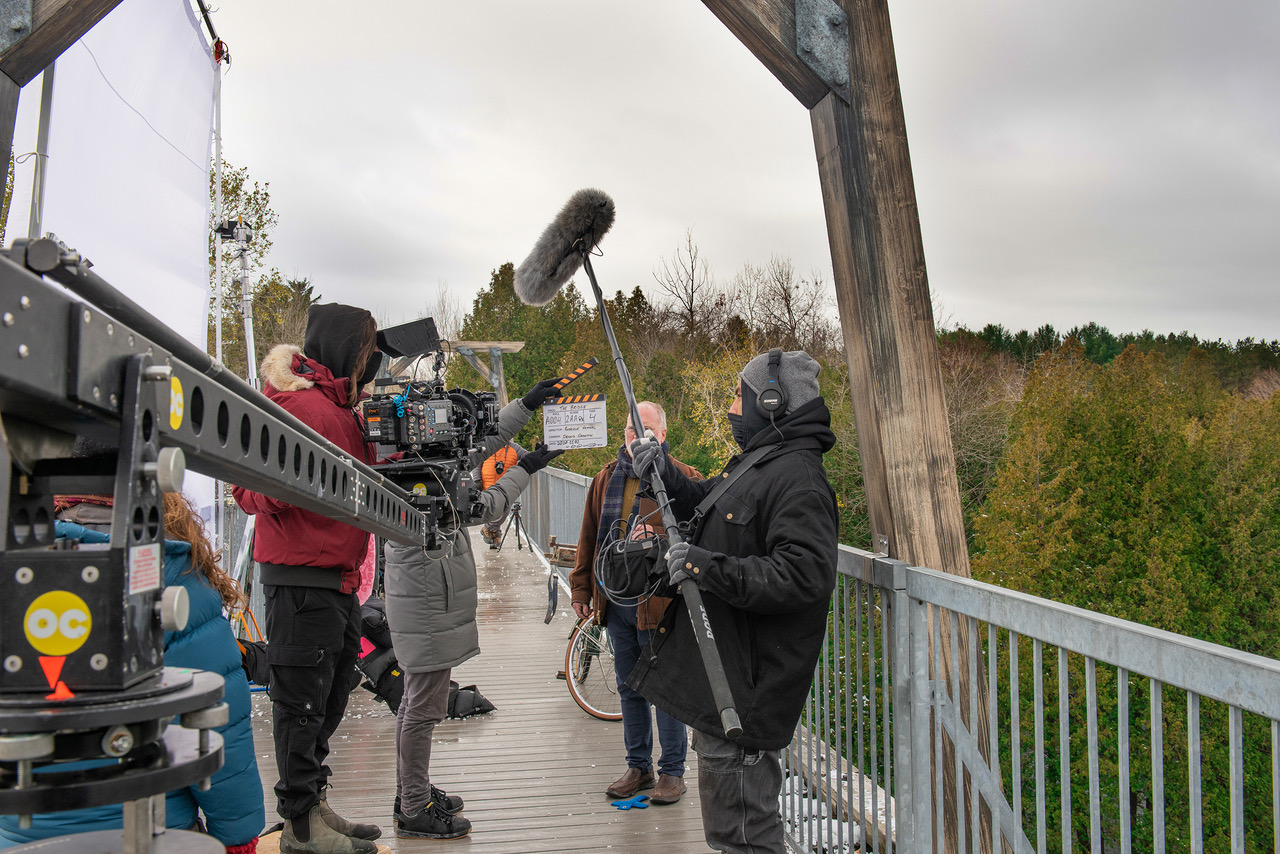WELLINGTON COUNTY – A new commercial film policy will come before county council after the county’s information, heritage and seniors committee approved an amended film policy on June 9, outlining regulations and fee schedules for films to be shot on county property.
“What I’ve found so far is people come to us because of the museum, because of our historic admin centre, or some of our buildings,” Wellington Place administrator Jana Burns told the Advertiser after her presentation to the committee.
Last fall, scenes were shot at the Trestle Bridge in Aboyne for the short film titled The Bridge, produced by a Toronto-based company.
“That was an interesting experience for us, which made me want to create the film policy in the first place,” Burns said.
She worked closely with Centre Wellington’s tourism and destination coordinator Deb Dalziel in outlining the policy presented to committee.
The goal of an official policy, Burns said, is to make the entire online application process easy and efficient with an option to pay fees online as well.
“[Producers] just want to come in and come out, and they want the process to be very efficient,” Burns said.
During the committee meeting, county councillor Diane Ballantyne questioned if any thought had been put into limiting how many days of filming could occur to avoid interfering with community enjoyment and overlap with events.
Burns said the county would evaluate each application for filming on a case-by-case basis, giving preference to public interests, particularly at the Wellington County Museum and Archives.
“We’re at the beginning stages, we haven’t had that much interest yet. Our focus is on serving the public … we host events and weddings, and we have community meetings here, so we don’t want to disrupt that,” Burns told the Advertiser.
“For at least the first year, we’re going to have it as a learning experience and see what works within our existing schedule,” she said.
Commercial film productions will need to address liability insurance, provide notice to residents within 300-feet of the shoot location, have a traffic control plan allowing for the stopping of traffic for three-minute intervals, and pay for police presence — to name some of the requirements outlined in the policy.
The permit fee to shoot on county property is $500 plus tax with a $3,000 security deposit for up to three days with another $1,000 for each extra day.
Productions at the museum, a designated national historic site, will add on $200 per day and $500 per hour of filming onto the permit and deposit fees.
County councillor Campbell Cork raised concern over how to define “commercial film.”
“If it’s a university student that’s doing a documentary, that doesn’t appear to be covered here,” he said.
“Should there maybe be a definition of what’s considered commercial and what’s not considered commercial?”
Burns agreed to amend the policy with a proper definition, adding the county has discretion over the fees it can charge.
She said she has been in contact with Ontario Creates, a provincial agency connecting creative industries, to spread the word about film-friendly Wellington County.
“We want to be put on the map, we want to do more shooting,” she said.
The next step is to develop a liability release agreement and set up the online application process.




